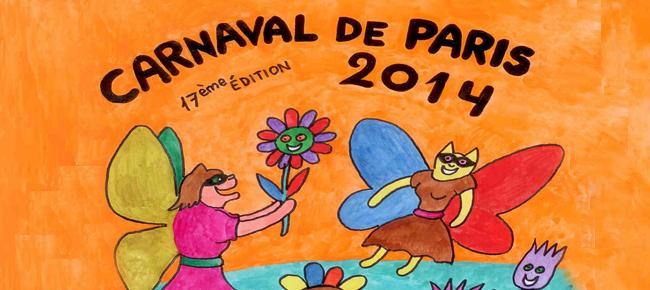History of Carnival
The pre-Lenten festivities known as carnival began in Italy in the 1400s, where pagan rituals related to fertility were adapted to the predominant Catholic tradition.
Thanks to its obvious merits (fun, food, and celebration, for starters), the tradition spread quickly among Catholic countries in Europe and was eventually
adopted in the Americas, taking hold most notably in the devoutly Catholic nation of Brazil.

From doughnuts and rich cakes to grilled meats and cheesy pastries, get to know the edible indulgences associated with carnival-loving countries around the world.
We've determined it takes a lot of calories to party Mardi Gras-style.
Italy
Carnevale, which means "farewell to meat," is one of the biggest festivals in Italy and begins two or three weeks before Ash Wednesday.
The celebration started to usher in the sober, meat-free period of Lent (the 40 days before Easter). Italians began throwing wild costume parties where revelers
ate up all the rich foods they had on hand, including plenty of meat. Traditionally at this time, rules and customs go out the window in favor of beautiful, ornate masked disguises,
public plays and exhibitions, and celebratory feasts.Fritelle, or fritters, with or without pastry-cream filling are the most common sweet associated with Venetian carnevale.
Savory foods served during this period tend toward pasta such as gnocchi, lasagna, and tortelli.
Germany
Known as Karneval in the Rhineland region, Fasching in Southern Germany, and Fastnacht in the Black Forest, pre-Lenten carnival traditions in Germany vary from region to region, including: the wearing of costumes that represent both the dark ghosts of winter and the colorful spirits of spring; the cutting off of mens' ties by marauding costumed women;
and dancing and beer-drinking throughout the streets and bars.For refreshment, Germans enjoy a traditional round-up of easy-to-eat snacks like fresh pretzels,
bratwurst and other sausages, and hot spiced wine. Particular to carnival and other holidays like New Year's Eve, special doughnuts called krapfen,
a.k.a. pfannkuchen, are prepared as a special pre-Lenten delicacy. These fried yeast-dough treats are traditionally filled with jam or jelly and sprinkled with sugar.
United States
Mardi Gras's roots can be traced to ancient Roman pre-Lent traditions, which followed French explorers to the New World just before the turn of the 17th century.
Parades and balls of masked merrymakers have always been part of celebration, and were eventually organized into socials clubs and krewes —
Comus, Zulu, and the Twelfth Night Revelers being the oldest and most revered.As with all other times of the year in this famed good-time city,
food is king during Mardi Gras. King cake, a ring-shaped pastry glazed with purple, gold, and green icing with a tiny plastic baby representing the infant
Jesus nestled inside, is the most iconic Mardi Gras delicacy, but red beans and rice, fried chicken, and jambalaya also top the list of popular party foods.
Czech Republic
In the Czech Republic, the traditional carnival celebration is known as Masopust, literally "farewell to meat," and traditions center around boisterous pork roasts
and the wearing of allegorical masks. Whole pigs are slaughtered for these celebrations and are served with the traditional accompaniment of sauerkraut with plenty
of beer and vodka to wash down the hearty meal.
Brazil
Spicy food and even spicier outfits characterize Brazil's four-day carnival celebration, which usually falls in February, the hottest month in the Southern hemisphere.
Copious amounts of samba dancing and revelry in the hot sun determine the daytime menu: light fish or chicken dishes, plenty of water and soda to keep hydrated,
and a bite here and there from the food stands that line the festival area. Post-parade, most festival-goers indulge in the country's most famous dish, feijoada, a hearty
platter of sliced meats accompanied by side dishes like rice, black beans, hearts of palm salad, hot peppers, and orange slices. Perhaps the most famous pre-Lenten festival,
the carnival celebrations in Rio de Janeiro attracted about 740,000 visitors in 2010.
Argentina
The dancing, drum parades, and barely-there costumes of the Argentinian Gualeguaychú carnival call to mind the vibrant celebrations in Brazil and other Latin American countries.
In the capital city of Buenos Aires, street musicians known as murgas and artists of all stripes line the streets. But in this predominantly Roman Catholic country,
people take lent seriously. Therefore they prepare themselves for the fasting period by celebrating a meatless diet even during carnival. Corn and seafood are popular alternatives,
in the form of tamales, stews, and simple finger sandwiches, called bocaditos.
Belgium
Located in the French-speaking Walloon region of Belgium, the town of Binche celebrates its renowned pre-Lent festival by eating fruit-stuffed fried doughnuts called smoutebollen. Satisfying the Belgian peoples' self-professed penchant for sweets, these apple beignets are freshly prepared at street stalls and liberally sprinkled with powdered sugar
before being served to festival-goers.
Trinidad and Tobago
For a pre-Lenten festival with a steel-drum soundtrack, head down to the islands of Trinidad and Tobago, whose residents throw the largest carnival celebration in the Caribbean.
Carnival traditions on the island nation reflect its multicultural history, which was influenced by Spanish and English colonists, French planters, African slaves,
and Indian indentured laborers, to name a few.To fuel the masquerade parades, pulsating music, and free-for-all dancing, Trinidadians turn to their traditional street foods.
Often stuffed with curried chicken, goat, or split peas and potatoes, West Indian roti bread is a carnival classic, as are fried bread sandwiches filled with chickpeas known as doubles.
But the most popular dish eaten during carnival is most likely corn soup. Made with corn, split peas, flour dumplings, and spices, this carb-rich dish is perfect for a
delivering a quick burst of energy during the day-long dance parties.
Cyprus
On this island off the coast of Greece, pre-Lent celebrations last for two whole weeks, the first of which is devoted to meat (Kreatini) and the second to cheese (Tyrini).
Kreatini is the last week when meat is permitted, so citizens take full advantage, feasting on lamb, pork, and chicken. Souvlaki (marinated skewers of grilled lamb),
afelia (spiced pork stew), and tavva (baked lamb and potatoes with tomatoes and onions) are popular offerings. Tyrini features a tantalizing array of dairy products
and pastries like bourekia, a pocket pastry filled with fresh cheese, and cheese ravioli. Many cities and town organize events for carnival, but the city of Limassol
hosts the largest, most colorful ones.



































